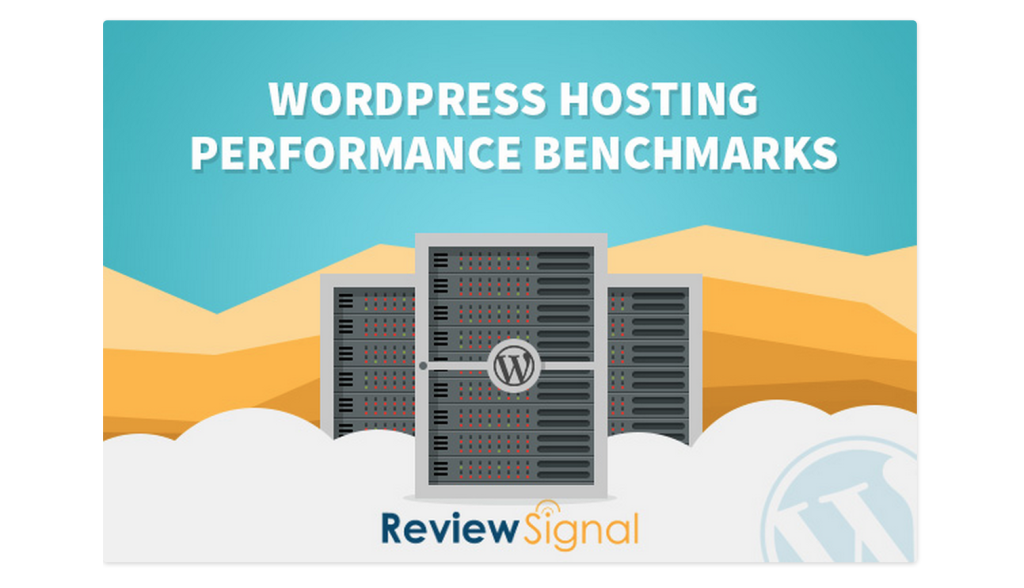WordPress hosts are a dime a dozen, and unfortunately even for a technically savvy person, it can be difficult to differentiate between a reputable host which is attentive to their customers, and a reseller who doesn’t own the servers and is simply marking up existing services. Additionally when it comes to pricing and support, it can be difficult figuring out who can provide the best service for you.
Rather than focusing on the basics of web hosting as this article from SitePoint discusses, in this guide we are going to focus on how to ensure that you are choosing a quality host over a fly by night company.
Most of this article applies to any type of web hosting, even if you’re not using WordPress. I’m also keeping the advice very general, however it still applies to growing number of WordPress specialized hosting services.
You Get What You Pay For
While pricing varies greatly from host to host, you should always be wary of any host promising “unlimited” storage or bandwidth on budget plans, especially when using a shared server. While the packages might sound great on the surface, hosting companies aren’t offering these rock bottom prices to be charitable. In fact, the “unlimited” claims come with caveats which are only found in the fine print of the hosting agreement. Typically hosts will use ambiguous language such as “unlimited usage as long as it is reasonable,” or they will limit you to a certain number of files on the server. Other common caps include suspending your site after using a certain number of CPU cycles or only letting you upload website components.
Although the tricks hosts play vary by the contract, the best way to protect yourself from these tricks is to avoid using hosts that promise astronomical resources at rock bottom prices. You should always look for a host which promises not to oversell resources. On virtual private server (VPS) and dedicated packages, you are guaranteed resources, so this only applies to shared hosting.
Ensuring the Host Meets Standards
When choosing a web host, you need to be sure that you’re actually using servers which are housed in fortified data centers rather than simply being in a server located in a person’s closet. Short of actually visiting the facilities of your host, you can ensure that you are using a credible host by looking for the following certifications:
-
PCI: The industry standard for any website handling credit card information, this is a must have for any reputable web host. Even if you are not taking payments, you should only choose a host with PCI certifications since it ensures your host has a reasonably secure facility.
-
SAS70: While this standard is technically focused around the financial services industry, this is another standard you should look for in a host because it further shows that the company takes extensive precautions to ensure the physical and digital security of their equipment.
-
HIPAA: The de-facto standard for the medical industry, while many hosts don’t meet the grade, if your business or clients are doing anything which involves maximum security, choosing a HIPAA compliant host doesn’t hurt. While the standard is rigorous, many HIPAA compliant hosts are priced at similar levels as non-compliant hosts.
Since WordPress is often used for ecommerce and data capture, standards compliance is an important consideration to decide on before you sign up.
Uptime Guarantees are Meaningless
In the hosting industry, you’ll typically see companies promising 99.9% uptime. While that number looks attractive, many hosts often attach exclusions to the figure to excuse them from issuing credits when your website goes down due to errors on their end. The most common exemptions in the uptime clause include acts of god and scheduled maintinance, however even if you experience downtime most hosts won’t pay you a dime.
This is because hosts also can claim exemptions from the guarantee by saying your website was insecure and caused the server failure, or that you used too much resources. Even a cut in a bandwidth pipe technically falls outside the scope of most hosting guarantees.
Even if you have a host which honors their guarantee, it is up to the customer to document the downtime and then file a claim. From there you are credited a percentage of your monthly fee. In the end however, there isn’t any neutral source which actually ensures that web hosts are reliable. While sites claim to provide uptime ratings, they’re almost always advertisements where hosts pay to have a fake rating listed.
This issue brings us to our next topic…
Don’t Trust Online Rating Websites
For most services, Google is your friend when it comes to vetting out companies. Unfortunately web hosting is trickier because if you google the term “web hosting reviews” almost every review site on the first few pages is going to be filled with paid listings and affiliate links. In fact, many hosts create fake review websites to lure in customers. Even though the sites might give high ratings to competing vendors, since the sites are filled with affiliate links, the advertising host still manages to profit.
Fortunately the solution to this is simple, although it isn’t 100% precise. When looking around for web hosts, pick a few that stand out. Then do Google searches to see what people are saying about them on social media and technology forums. Don’t just focus on reviews saying “this host is great” or “this host is horrible.” Look for reviews that detail actual experiences.
Look for customers talking about how the host handles support tickets and downtime. Focus on customers who discuss the pros and cons of a host. Just make sure that you conduct an extensive search because hosting is a vast field and you’ll see plenty of opinions.
Although reviews can be easily manipulated, a few dedicated individuals have taken the time to benchmark hosting companies. One that recently wrote about is the Review Signal WordPress Hosting Report by Kevin Ohashi. Kevin has published his methods and findings from testing various hosts over the period of a month.

WordPress Specialized Hosting
As the popularity of WordPress rises, many of the big hosting players are now looking at the WordPress market to offer features to lure WordPress users. There’s also an increasing number of WordPress specialized hosting providers and options popping up (I’ve covered some of these previously). Some of them offer optimized environments, developer tools and staging environments.
Regardless of which hosting provider you are considering (traditional providers or specialized WordPress hosting providers) the topics covered in this article are relevant to any hosting provider.
Always Assume the Worst
When it comes to web hosting, there isn’t a silver bullet to vet the good from the bad. No single host is perfect, even the giants who have been in the industry for years. When you finally settle on a hosting company, you should always choose month to month billing, even if it carries a slight premium. Additionally you should have at least two fallback hosts in mind.
Since websites make or break businesses today, you can’t have all your eggs in one basket. Hosting companies often lure customers into paying 12 to 36 months in advance because once the money is sent in, the host is free to do as they please. The company might be great at first, but a few months in when issues come up, you don’t want to be locked in to the provider.
To ensure that you can easily move your data from host to host – make sure that the companies you choose use common control panels such as cPanel or Plesk. If you’re using a common control panel, you should also be able to easily manually back up your site (SitePoint recently covered manually backing up WordPress here). Hosts which use proprietary panels often can cause issues if you are migrating to a different host.
By considering the tips in this article, you should be able to protect yourself from many subpar hosts.
 Charles Costa
Charles CostaCharles Costa is a content strategist and product marketer based out of Silicon Valley. Feel free to learn more at CharlesCosta.net.


